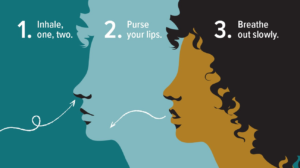What is Water?
Water can be defined as a substance comprising of the chemical elements hydrogen and oxygen and it exists in gaseous, liquid, and solid states. It can be described as one of the most plentiful and essential of compounds (Zumdahl, 2021).
The Role of Water?
Water keeps every system in the body functioning properly. Harvard Medical School’s Special Health Report explains that water has a number of important roles such as carrying nutrients and oxygen to your cells, aiding digestion, flushing bacteria from your bladder, preventing constipation and many more
Why We Need to Drink More Water?
If one does not drink adequate water each day, he/she is at risk of becoming dehydrated. Some warning signs of dehydration include low blood pressure, weakness, dizziness, confusion or urine that is dark in color.
Dehydration can have a noticeable effect if a person loses as little as 2% of their body’s water content. This can lead to altered body temperature control, increased motivation and increased fatigue. It can also make exercise feel much more difficult, both physically and mentally (Barry Popkin et al, 2010). Optimal hydration has been shown to prevent this from happening, and it may even reduce the oxidative stress that occurs during high-intensity exercise which is expected when one considers that muscle is 80% water. If an individual exercises intensely and tends to sweat, staying hydrated can help them perform at their absolute best (Ill–Young Paik, 2009).
One health benefit of drinking water is that it assists in maximizing physical performance. If an individual fails to stay hydrated, their physical performance can suffer, and this is specifically essential during intense exercise or high heat.
According to Riebel (2019), another benefit of drinking water is that it significantly affects energy levels and brain function. The brain is strongly influenced by its hydration status and studies display that even mild dehydration, such as the loss of 1–3% of body weight, can impair many aspects of brain function. Other studies, with subjects ranging from children to older adults, have shown that mild dehydration can impair memory, mood and brain performance.
Drinking plenty of water can help individuals lose weight which can be identified as another health benefit of water. This is because water boosts your metabolic rate and increases satiety. Some evidence suggests that increasing water intake can promote weight loss by slightly increasing individuals’ metabolism, which can increase the number of calories they burn daily (Brenda Davy et al, 2008).
Lastly, constipation is a common problem that is characterized by infrequent bowel movements and difficulty passing stool. Increasing fluid intake is often recommended as a part of the treatment protocol. Low water consumption places you at risk for constipation in both younger and older individuals. Studies have shown that mineral water that is rich in magnesium and sodium improves bowel movement frequency and consistency in people with constipation (Gordana Bothe et al, 2017).
Originally posted: https://youaresweetenough.com/2021/07/29/health-benefits-of-water/




